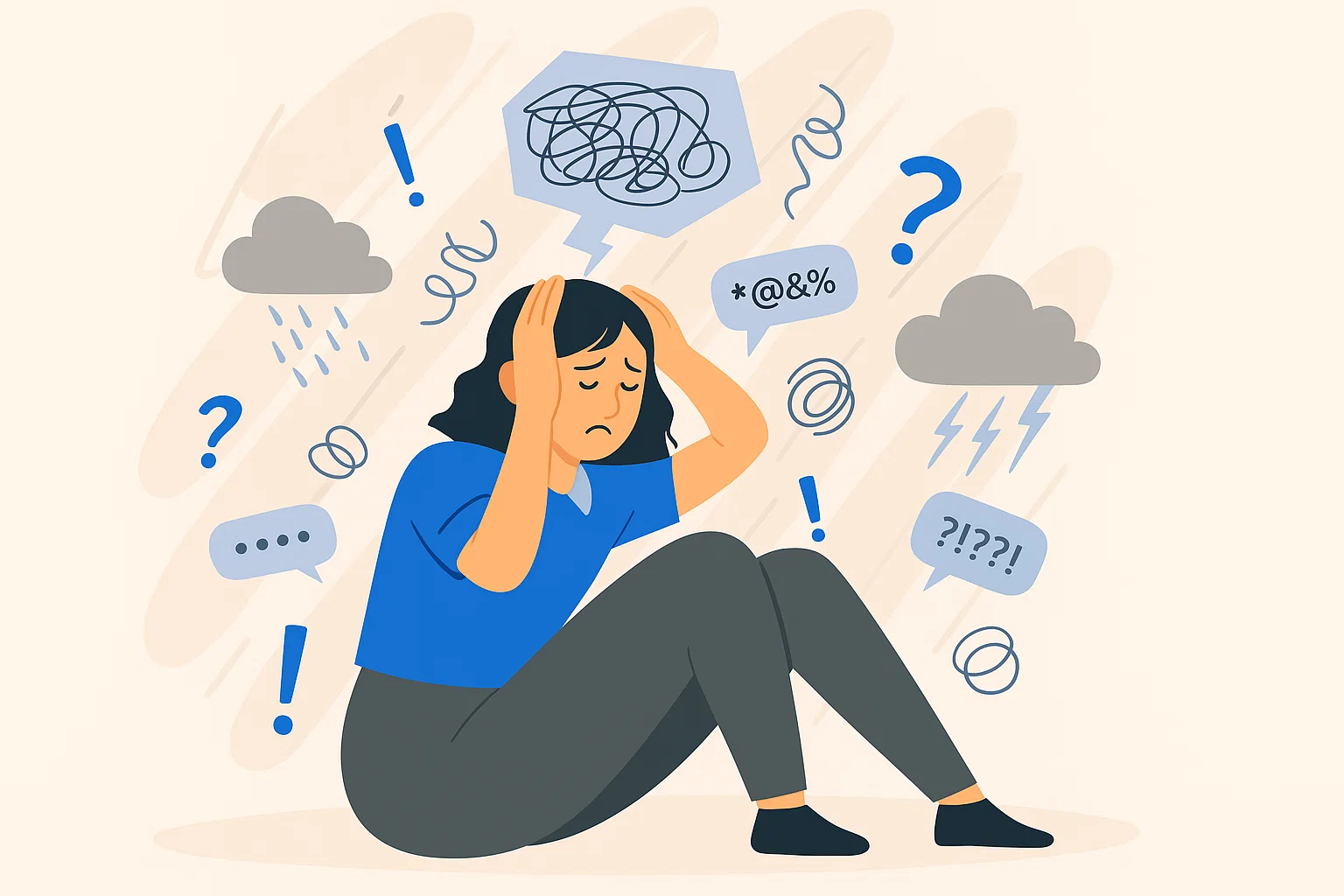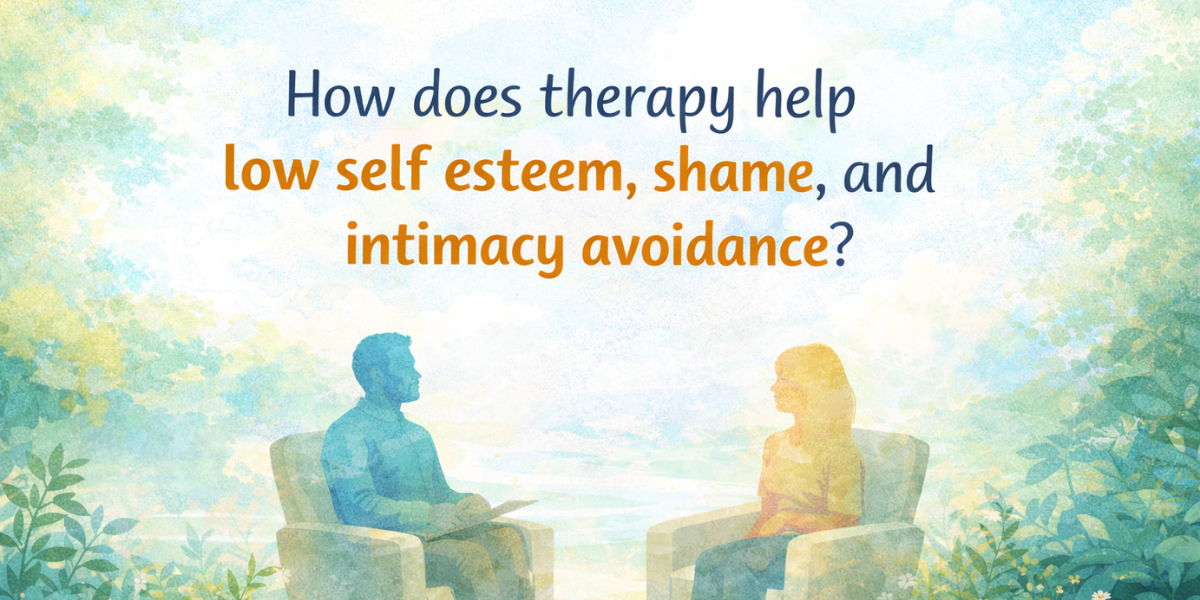Anxiety is more than just a fleeting sense of worry. For many, it’s a persistent emotional weight, a shadow that follows you into conversations, career decisions, relationships, and moments when you’re expected to thrive. Whether it’s the racing thoughts at night, the constant overthinking, or the tight feeling in your chest that never quite goes away—anxiety can be exhausting and, at times, paralyzing.
But here’s the truth: you don’t have to carry this alone. You don’t have to fight through each day hoping things will just get better. Therapy for anxiety during major life change offers a path forward—a compassionate, guided way to navigate life’s challenges with clarity, strength, and peace.
In this article, we’ll explore how anxiety shows up, why it often becomes worse during pivotal life transitions, and how therapy can become the catalyst for your transformation.
Understanding Anxiety: More Than Just Worry
Anxiety is a natural stress response—a signal your brain sends to protect you from perceived threats. In moderation, it helps us stay alert and focused. But when anxiety becomes chronic or disproportionate to the situation, it can interfere with your daily life, affecting everything from your sleep to your decision-making to your self-esteem.
Common symptoms of anxiety include:
- Constant worry or dread
- Irritability or restlessness
- Racing thoughts or difficulty concentrating
- Physical symptoms like fatigue, muscle tension, or rapid heartbeat
- Avoidance of situations that cause fear or discomfort
Sometimes, you may not even recognize that anxiety is the underlying issue. It can masquerade as procrastination, burnout, perfectionism, or even anger. Left unaddressed, it can erode your confidence and keep you from fully living your life.
Life Transitions and Anxiety: Why the Timing Matters
Major life changes—no matter how positive—can trigger anxiety. Whether you’re starting a new job, going through a breakup, moving to a new city, becoming a parent, or navigating a personal identity shift, these moments stretch our emotional capacity.
Change brings uncertainty. It pushes us out of our comfort zone and challenges our sense of control. Even transitions we choose for ourselves can feel overwhelming when we’re confronted with new responsibilities, expectations, or unfamiliar dynamics.
That’s why therapy for anxiety during major life change is so powerful. It doesn’t just help you “cope”—it helps you process. With a trusted therapist, you gain the tools and insights needed to reframe your experiences, manage your emotional responses, and stay grounded through the chaos.
The Hidden Costs of Unresolved Anxiety
When anxiety is left unmanaged, it can quietly sabotage your potential. You might:
- Turn down opportunities because you fear failure
- Stay in unhealthy relationships out of fear of being alone
- Avoid speaking up or setting boundaries
- Overanalyze every decision until you’re paralyzed by inaction
- Struggle with imposter syndrome in your career or creative pursuits
Anxiety doesn’t just whisper doubts into your ear—it builds invisible walls around what’s possible for you. And over time, those walls feel like reality. But they’re not. They’re symptoms, not truth. And with the right support, those walls can come down.
How Therapy Helps You Reclaim Control
So how does therapy actually help?
Let’s break it down:
1. Naming and Understanding the Source
The first step in healing is awareness. A skilled therapist helps you untangle your thoughts and feelings, so you can identify the root causes of your anxiety. Sometimes, anxiety is tied to past trauma, limiting beliefs, or unresolved grief. Other times, it’s situational—related to your current environment, lifestyle, or relationships.
2. Building New Coping Strategies
Once you understand your anxiety patterns, therapy gives you practical tools to respond differently. You’ll learn:
- Grounding techniques to calm your nervous system
- Cognitive strategies to challenge anxious thoughts
- Mindfulness practices to stay present
- Communication skills to express your needs and boundaries
These aren’t just band-aids—they’re long-term tools for emotional resilience.
3. Creating a Safe Space for Exploration
Sometimes what we need most is simply to be heard. Therapy offers a nonjudgmental space where you can explore your emotions without fear. You’re not “too sensitive” or “overreacting”—your feelings are valid, and they deserve to be seen and understood.
In that space of safety, healing becomes possible. You begin to shift from survival mode to a space of self-trust and empowerment.
4. Supporting You Through Transitions
During times of major life change, having a consistent therapeutic relationship can be a game-changer. Whether you’re grieving the end of a chapter or standing at the edge of something new, therapy provides the scaffolding you need to move forward with clarity and confidence.
You don’t have to figure it out alone. You get to be supported.
Therapy-Informed Coaching: A Bridge Between Healing and Growth
In today’s evolving mental health landscape, therapy and coaching are no longer either/or options—they can be integrated to offer deeper, more holistic support. That’s where therapy-informed coaching comes in.
Unlike traditional therapy, which often focuses on the past and diagnosing mental health issues, therapy-informed coaching blends emotional healing with forward momentum. It’s ideal for people who:
- Have done some personal work and are ready for the next level
- Are navigating a big life transition and want support that honors both their emotional needs and personal goals
- Want tools that bridge both inner healing and outward transformation
Through therapy-informed coaching, you don’t just heal—you grow. You step into your wholeness.
You’re Not Broken—You’re Becoming
Let this sink in: Anxiety doesn’t mean you’re broken. It means you’re human.
You care deeply.
You want to get it right.
You feel the weight of the world because you’re thoughtful, sensitive, and aware.
But none of that disqualifies you from peace, joy, or success. In fact, those very traits—when guided with the right support—can become your greatest strengths.
You don’t have to be fearless to move forward.
You don’t have to “fix” yourself before you can be worthy of love, success, or happiness.
You simply need a space to be real, to be supported, and to be seen.
And that’s exactly what therapy can offer.
Your Next Step: Support Is Just One Choice Away
It’s easy to put off seeking support. Life is busy, and reaching out can feel intimidating. But what if this moment—the one where you’re reading these words—is the very invitation your soul has been waiting for?
What if this is the turning point?
You don’t have to have all the answers right now. You just need to take the first step.
About Us
💫 Meet Crystal Perdue
Your Partner in Growth and Transformation
Step into a journey of healing, self-discovery, and empowered living. With a foundation rooted in therapy-informed coaching, I create a compassionate space where inner healing and personal growth come together.
✨ Whether you’re working through emotional challenges, moving past self-doubt, or simply ready to evolve—I’m here to support you every step of the way.
👉 Book your session today and take the first step toward greater clarity, confidence, and meaningful transformation.
Final Thoughts
Anxiety may be part of your story—but it doesn’t have to be the whole story. With the right tools, support, and guidance, you can shift from a life of fear and doubt to one of trust and possibility. Therapy isn’t just for moments of crisis—it’s for anyone who wants to live with more intention, ease, and connection.
You deserve that.
And your next chapter? It’s waiting for you.
FAQs
What is anxiety, and how do I know if I have it?
Anxiety is a natural response to stress or perceived danger. It becomes a problem when it’s persistent, overwhelming, or interferes with daily life. Common signs include racing thoughts, constant worry, difficulty concentrating, fatigue, and physical symptoms like a rapid heartbeat or shortness of breath. If these feelings are affecting your quality of life, therapy can help you manage them effectively.
Can therapy really help with anxiety?
Yes, therapy is one of the most effective tools for managing anxiety. It helps you identify the root causes of your anxiety, change unhelpful thought patterns, and learn practical coping strategies. Many people find relief and greater emotional clarity through consistent therapeutic support.
What types of therapy are effective for anxiety?
Several types of therapy are effective for treating anxiety, including:
- Cognitive Behavioral Therapy (CBT) – helps change negative thinking patterns.
- Mindfulness-Based Therapy – focuses on being present and managing anxious thoughts.
- Therapy-Informed Coaching – combines emotional healing with goal-oriented strategies, especially useful during life transitions.
- Your therapist or coach will tailor the approach based on your specific needs.
How does therapy help during major life changes?
Therapy for anxiety during major life change provides emotional support, coping tools, and clarity when everything feels uncertain or overwhelming. Life transitions—such as moving, changing careers, ending relationships, or becoming a parent—can trigger heightened anxiety. Therapy creates a safe space to process your feelings and stay grounded during these shifts.
Is therapy-informed coaching different from traditional therapy?
Yes. Therapy-informed coaching blends the emotional depth of therapy with the forward focus of coaching. It’s ideal for people who may not need clinical treatment but still want to work through anxiety, build self-awareness, and make empowered life choices—especially during major changes or personal transformation journeys.
How long does it take for therapy to work for anxiety?
The timeline varies from person to person. Some individuals begin to feel better after just a few sessions, while others may need several months for deeper change. The key is consistency and openness to the process. A strong connection with your therapist or coach also makes a big difference in outcomes.
What if my anxiety feels worse when I start therapy?
It’s not uncommon to feel heightened emotions when you begin therapy. Talking about your thoughts and feelings can initially stir things up, but it’s a sign that healing is in motion. With time and trust, therapy helps you process these emotions in a way that brings lasting relief and growth.
Can I do therapy if I’m not sure what’s causing my anxiety?
Absolutely. You don’t need to have all the answers before starting therapy. Part of the therapeutic process is helping you explore your experiences, identify patterns, and uncover hidden triggers. You simply need a willingness to be curious about your inner world.





